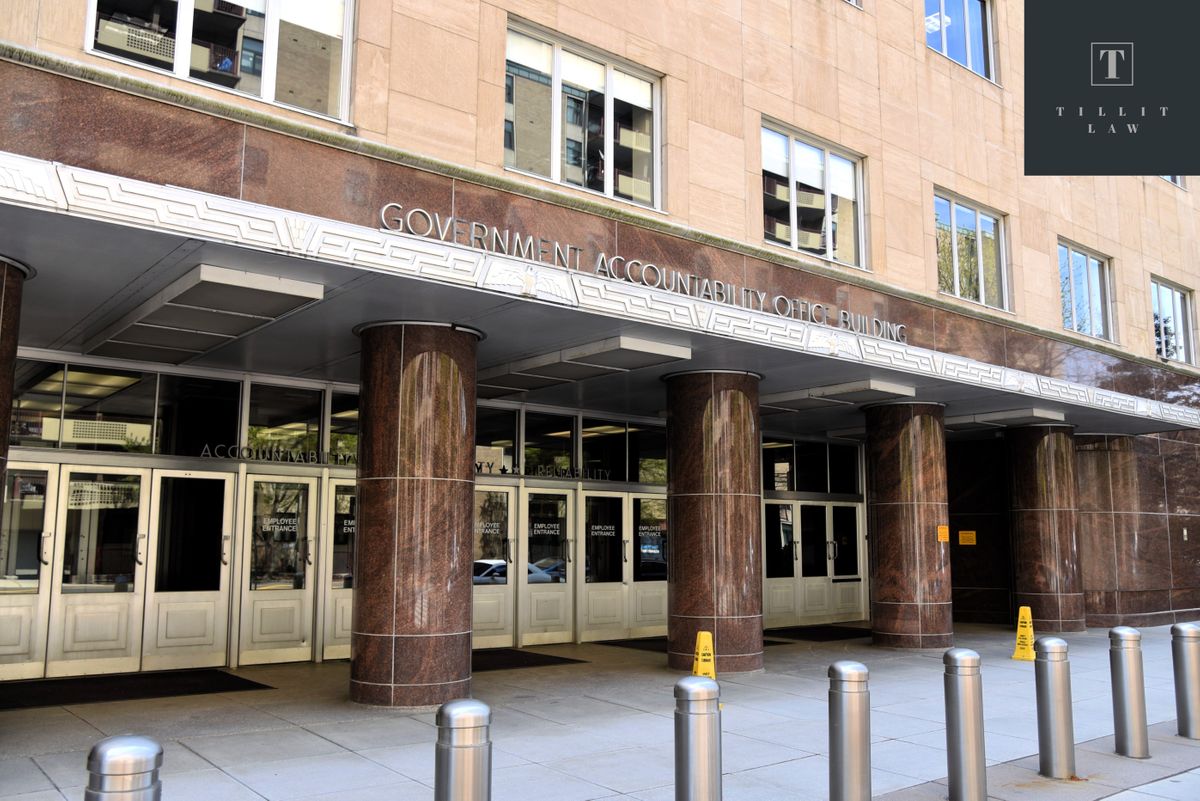The Government Accountability Office’s (GAO) bid protest regulations require protesters to provide a detailed statement of the legal and factual grounds of protest. While the GAO does not require protesters to file formal briefs or other technical forms of pleadings or motions, protesters must nevertheless file concise and logically arranged protests that clearly state legally sufficient protest grounds. On July 14, 2025, the GAO submitted a proposal in response to Section 885 of the Servicemember Quality of Life Improvement and National Defense Authorization Act for Fiscal Year 2025, clarifying and enhancing its pleading standard. While this new pleading standard is not a significant change from the previous standard, it provides added clarification that protesters’ bare allegations are insufficient to meet GAO’s pleading requirements. Under this new standard, protesters must provide, at a minimum, credible allegations that are supported by evidence and are sufficient, if uncontradicted, to establish the likelihood of the protester’s claim of improper agency action. Stated another way, protesters must provide more than a bare allegation, such that the allegation is supported by some explanation and evidence that establishes the likelihood the protester will prevail in its claim. In practical terms, the GAO will continue to dismiss protests or specific allegations within that are based on speculation, factual inaccuracies, or flawed legal assumptions.
In B-423546, a bid protest decision issued on August 5, 2025, the GAO applied the new pleading standard to dismiss the protester’s speculative allegations concerning the agency’s evaluation of quotations. The Defense Logistics Agency (DLA) issued a delivery order for the acquisition of 1770 vehicle tire cross chains, used for various critical weapons systems. The protester raised several allegations against the issuance of the roughly $1 million delivery order. Among its allegations, the protester challenged the DLA’s evaluation of quotations as unreasonable because, according to the protester, the awardee had misrepresented its inventory stock when it submitted its quotation. According to the protester, the awardee did not have the necessary stock available from the supplier to fulfill the agency’s requirements because the awardee utilized the same supplier as the protester, and the protester had already procured the inventory quoted by the awardee from the supplier. In applying the new pleading standard, the GAO determined that the protester had not provided sufficient information to support its contention that the awardee had misrepresented its supply. Specifically, the protester had failed to provide evidence to support its contention that the awardee could not have obtained the cross chains through ordinary supply channels. Similarly, the protester provided no information or evidence to suggest that the awardee intended to use the same supplier as the protester. Even assuming the companies were using the same supplier, the protester had failed to provide information to support its allegation that it owned all of the supplier’s cross chain stock or that the supplier did not have sufficient inventory to supply the cross chains to multiple dealers. Under these facts, the GAO found the protester’s bare allegations to be speculative and, thus, factually and legally insufficient.
The new pleading standard does not represent a sea change in terms of protests arguments based on pure speculation. In B-420940.3; B-420940.4; B-420940.5; B-420940.6, a bid protest decision issued on December 12, 2022, the GAO dismissed some of the protester’s arguments about the evaluation of the awardee’s proposal as a preliminary matter even before the agency report was filed because the arguments were based on the protester’s speculation. The Centers for Medicare and Medicaid Services (CMS) sought to acquire enterprise portal services (EPS) through a best-value trade-off evaluation. The protester challenged the resultant ~$61.5 million task order award by calling into question the agency’s evaluation of several factors in the technical proposals. In the relevant protest grounds, the protester alleged that its proposal was superior to the awardee’s in several respects, including CMMI certification, SAFe lean agile principles, direct EPS experience, and SAFe team staffing. Before submitting its agency report, CMS requested a dismissal of some of the protest grounds for being based on speculation and, therefore, being factually and legally insufficient. The GAO agreed, noting that while the protester had relied upon content from the awardee’s website to support its protest allegations about CMMI certification and SAFe principles, it had based its other allegations on mere speculation regarding the contents of the awardee’s proposal and its proposed approach. Consequently, before addressing the merits of the protest, the GAO dismissed the speculative allegations, as they did not provide an adequate basis for the protest.
In B-423414; B-423414.2, a bid protest decision issued by the GAO on June 30, 2025, the protester’s allegations were dismissed because they were based on factual inaccuracies. A small business telecommunications contractor protested the actions of the Social Security Administration (SSA) in procuring toll-free telephone numbers and other telecommunications services. The protester alleged that the SSA had improperly made a sole-source award to Amazon Web Services (AWS) without publicizing or justifying its decision. Meanwhile, the agency pointed out that it had actually issued a task order to a different contractor under a blanket purchase agreement (BPA) that had been previously established against that contractor’s GSA schedule. The agency explained that the BPA was established to facilitate access to cloud computing services, and Amazon Connect was such a service. However, the award was not made to AWS. Consequently, the SSA requested dismissal because the protest was factually inaccurate. The GAO agreed with the agency and noted that not only did the SSA not make an award to AWS, but the award was also not made on a sole-source basis. As a result, the GAO found that the protest was based on faulty facts and dismissed the protester’s allegations.
In B-421948, a bid protest decision issued on September 27, 2023, the GAO dismissed the protest before the filing of the agency report because the protester’s allegations were found to be legally insufficient. The Department of Veterans Affairs (VA) issued the relevant request for proposals (RFP) for the acquisition of advanced life support and stretcher van transportation services. The protester who was the incumbent on the prior contract failed to submit a proposal. The protester alleged that it did not submit a proposal because it did not receive a notification of solicitation posting on SAM.gov. The VA requested dismissal, arguing that because the contracting officer (CO) had posted the solicitation on SAM.gov, the agency had satisfied its obligation to adequately publicize the requirement. Thus, the agency argued that the protester had failed to state a valid legal basis for the protest. The GAO noted that the CO had indeed posted the solicitation on SAM.gov, where it was fully accessible to the protester. Additionally, the protester failed to demonstrate why its allegations regarding the failure of the SAM notification function, even if true, constituted a violation of procurement law or regulation. The decision explained that while the SAM notification function was a useful feature, the protester’s reliance on it could not nullify its constructive knowledge of the solicitation. Consequently, the protest was dismissed because the protester’s allegations were found legally insufficient.
The GAO’s bid protest regulations require protesters to state a sufficiently detailed statement of legal and factual grounds to establish a reasonable potential that their protest allegations may have merit. Under the new pleading standard, protesters must provide, at a minimum, credible allegations that are supported by evidence and are sufficient, if uncontradicted, to establish the likelihood of the protester’s claim of improper agency action. The new standard is not a major change from the previous one for practical purposes. Protests containing allegations based solely on speculation, factual inaccuracies, or flawed legal assumptions are still likely to be dismissed, even before the government is required to file an agency report. Furthermore, contractors should be mindful that the GAO interprets its bid protest regulations as requiring protesters to set forth in their initial protests all known legal and factual grounds supporting their allegations. In other words, protesters are prohibited from advancing piecemeal presentation of evidence, information, or analysis. Thus, protesters are not only required to state a sufficiently detailed statement of protest grounds but must also present all known legal and factual information to support their allegations when submitting their protests. Doing so is critical because they may not have the opportunity to present additional details later if the GAO determines that the information was known or should have been known to them at the time of bid protest filing.
This Bid Protest Insight is provided as a general summary of the applicable law in the practice area and does not constitute legal advice. Contractors wishing to learn more are encouraged to consult the TILLIT LAW PLLC Client Portal or Contact Us to determine how the law would apply in a specific situation.





